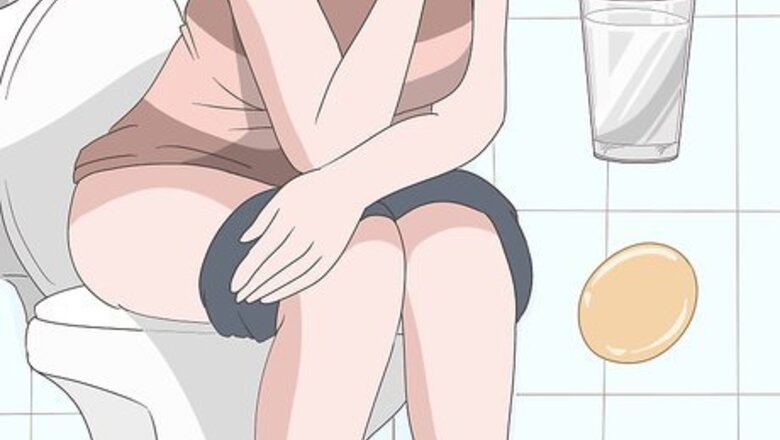
views
X
Trustworthy Source
Mayo Clinic
Educational website from one of the world's leading hospitals
Go to source
Having a UTI is no fun, but luckily, there are a few steps you can take to help avoid them.
Practicing Good Sexual Hygiene
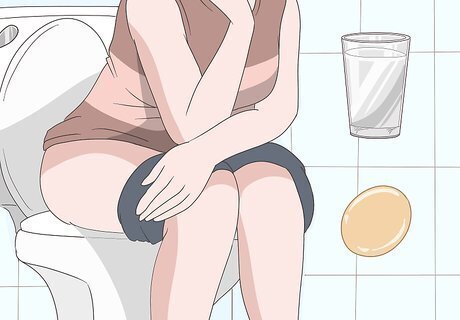
Be particularly vigilant about hygiene if you have a new sexual partner. If you've just started having sex, have a new sexual partner, or are having sex more often than usual, you may have a higher risk of developing a UTI. Although it's always important to keep your genital area clean, drink plenty of water, and urinate frequently, try to be especially mindful of these and other preventative measures if your sexual habits have changed recently. Did You Know? Both men and women can contract UTIs, but you're 30 times more likely to have a UTI if you're female than if you're male.
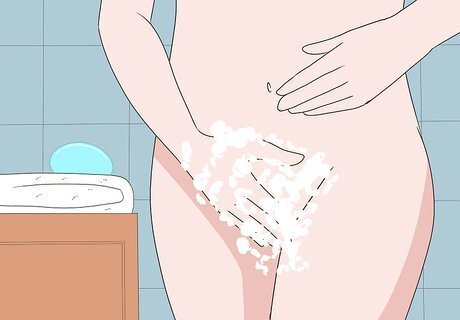
Wash your genital area every day and before you have sex. One of the easiest ways to help prevent a UTI is to keep your genital area clean. Wash the area thoroughly with soap and warm water, and pat your skin dry with a soft towel after you get out of the shower. If you think you'll be romantic with your sexual partner, wash the area again to ensure there's no bacteria that can make its way into your urethra. Also, make sure to carefully wash the skin around your anus, as bacteria from that area can enter your urethra, especially if you're a female. Taking showers instead of baths may also help decrease the risk of developing a UTI. Consider asking your partner to wash their genitals before you have sex, as well. You can even turn it into foreplay by showering together first.
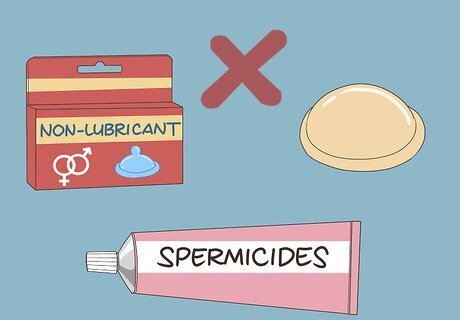
Avoid using spermicides, a diaphragm, or unlubricated condoms. Certain types of birth control can also lead to irritation of your urinary tract. This includes spermicides and unlubricated condoms, so make sure any condoms you use are lubricated and spermicide-free. Avoid using spermicidal lubricants, as well. Ask your doctor to recommend another birth control option if you have a diaphragm and you're concerned about UTIs.
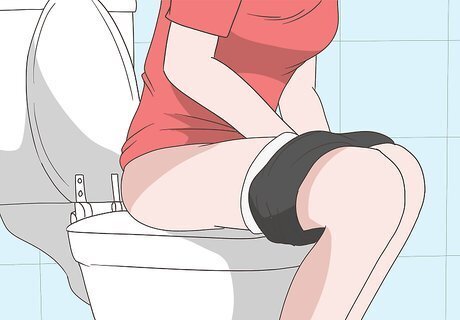
Try to urinate before and after you have sex. Visit the bathroom before sex to cleanse away bacteria so it doesn't get pushed up into your urethra during sex. As soon as you get a chance after you and your partner have sex, take a trip to the restroom. Emptying your bladder after sexual intercourse can help wash away any bacteria that might have gotten into your urethra. The sooner you can go, the less opportunity the bacteria will have to travel up your urethra, so try not to wait if you can help it. Urinating before sex may help flush out any bacteria that could be spread during intercourse. However, it may also make it harder to empty your bladder after sex.

Take a single dose of an antibiotic after sex if you have recurrent UTIs. If you have 3 or more UTIs within a year, that's considered a recurring UTI. If that's the case, talk to your doctor about prescribing you a low-dose antibiotic. Often, your doctor will direct you to take one antibiotic pill after you have sex to help your body fight off any infections. Your doctor may also ask you to take a low-dose antibiotic once a day for about 6 months, or they may prefer to only prescribe you antibiotics when you have an active UTI.
Making Lifestyle Changes
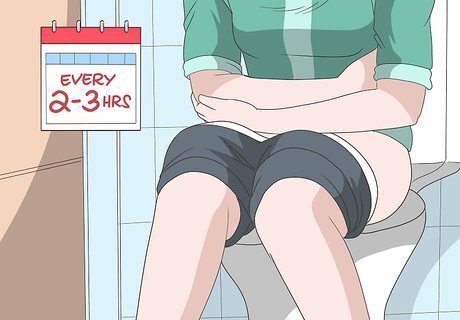
Empty your bladder at least every 2-3 hours. Holding it in when you need to urinate can increase your chances of getting a UTI, and may even leave you at risk for recurring infections. As soon as you feel the urge to empty your bladder, make a visit to the restroom. Even if you don't think you need to go, at least make an attempt to urinate every 2-3 hours to ensure you don't accidentally hold in your urine.
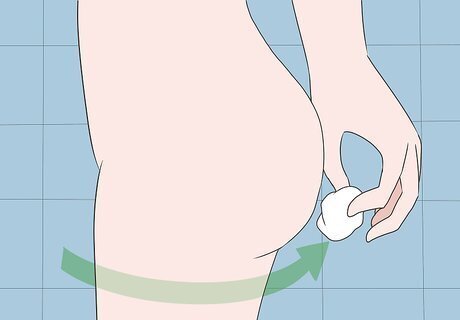
Wipe from front to back if you're a woman. Any time you go to the bathroom, try to remember to wipe from the front of your genitals back toward your anus. If you wipe from back to front, you could be spreading bacteria from your bowels toward your urethra, which could lead to a UTI. If this seems uncomfortable at first, try standing with one leg propped on your toilet or the edge of your bathtub.
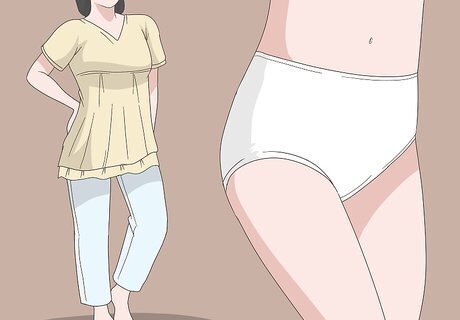
Wear loose-fitting clothes and underwear with a cotton crotch. Keep yourself fresh and cool by wearing underwear made from cotton or another breathable material. Cotton underwear will allow sweat and other moisture to evaporate off of your skin, so bacteria will have less of a chance to multiply. In addition, avoid wearing tight-fitting pants that constrict or irritate your genital area, as this can trap moisture and increase your risk of a UTI. Avoid wearing nylon underwear. These will leave moisture trapped against your skin, which can allow bacteria to grow.
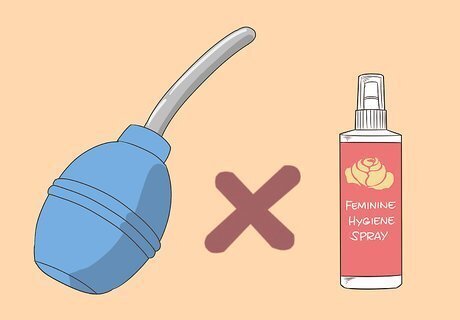
Don't douche or use feminine hygiene sprays if you're a female. Deodorant sprays, douches, and powders can potentially irritate your urethra, giving bacteria more of an opportunity to grow. All you need is soap and water to keep your genitals clean, unless your doctor directs you otherwise. Also, avoid using scented bubble bath, as this can lead to irritation.

Ask your doctor about an estrogen cream if you're menopausal. Women who are in menopause may be at an increased risk of developing a UTI. Applying an estrogen cream around the genital area may decrease your chance of developing an infection. Be sure to use your prescribed cream exactly as directed. For instance, your doctor may advise you to apply it twice a week for one year. Estradiol and Premarin are two commonly-prescribed estrogen creams for menopausal women.
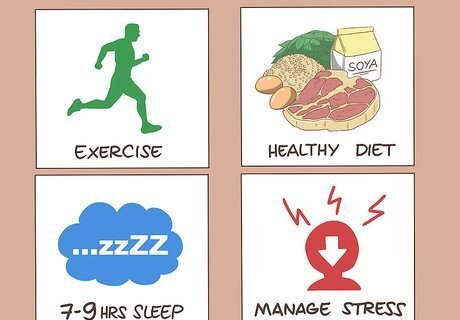
Support your immune system to help you fight off infection. A strong immune system helps your body fight off bacteria that might cause a UTI infection. To build your immune system, eat healthy foods, including fresh fruits and veggies. Additionally, talk to your doctor about taking a multivitamin or other supplements, like zinc, vitamin C, vitamin E, and vitamin A. Additionally, exercise, manage your stress levels, and get 7-9 hours of sleep. If you're worried about your immune system being weak, talk to your doctor about what you can do to improve your immunity.
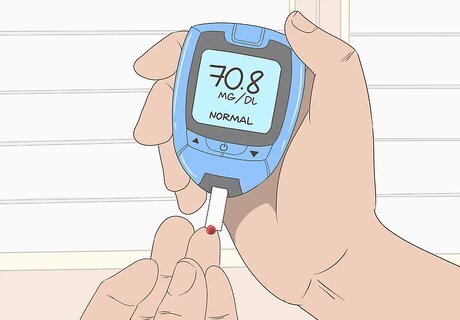
Manage your blood sugar to prevent UTIs. Uncontrolled blood sugar levels increase your risk of getting a UTI because sugar feeds bacteria and yeast. You may even have recurring UTIs that are hard to treat. To keep your blood sugar in check, follow a balanced diet built around fresh produce and lean protein. Additionally, limit simple sugars because they can spike your blood sugar. Follow all of your doctor's treatment advice.
Using Diet and Supplements

Drink 6-8 glasses of water a day. Since a UTI is caused by bacteria in your bladder or urethra, one easy way to help prevent the infection is by drinking plenty of water each day. As you urinate, you'll flush the bacteria out of your urinary tract. This is also a good way to shorten the duration of a UTI if you do get one. If you drink cranberry or blueberry juice to prevent UTIs, you can count it toward your fluid intake for the day. Any fluids will work to flush the bacteria out of your system. However, water is the most effective, and it's the healthiest thing to drink in large amounts.
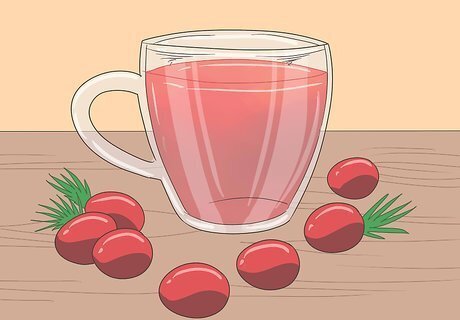
Drink unsweetened cranberry or blueberry juice to help prevent UTIs. If you want to add something extra to your UTI-prevention routine, try drinking an 8 fl oz (240 mL) glass of unsweetened cranberry juice each day. It's not proven that it will help, but since there are no adverse effects from drinking the juice, it can't hurt if you want to try! While cranberries do contain an ingredient that can keep bacteria from adhering to your bladder wall, it's uncertain whether cranberry juice actually contains enough of that ingredient to prevent UTIs. Taking cranberry pills may also help. The exact amount you need to take in order for the supplement to be effective is still being studied, but taking a daily cranberry supplement as directed won't do you any harm, and may decrease your risk of developing the infection.

Eat foods that are rich in vitamin C to help your body fight infection. Vitamin C is great for your immune system, but in addition, large amounts of vitamin C can make your urine more acidic. That can help inhibit the growth of bacteria in your urine. Try eating foods like citrus fruits, tomatoes, red and green peppers, strawberries, and broccoli to increase your vitamin C intake. Taking 100mg of a vitamin C each day may also help prevent a UTI.
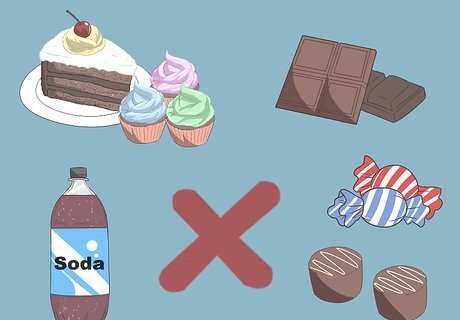
Avoid simple sugars because yeast feeds on sugar. Eating a lot of sugar increases your risk of getting a UTI because sugar feeds yeast. Reduce or eliminate simple sugars from your diet to reduce your risk of infection. This might help you avoid future UTIs. Cut out foods that have added sugars, like treats, baked goods, sugary drinks, and processed snacks.
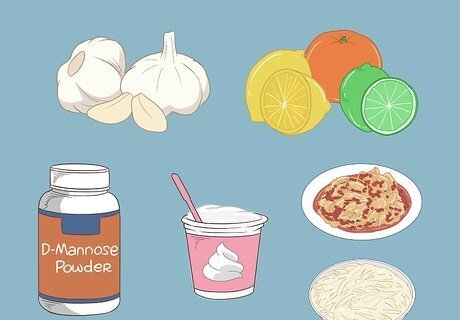
Use garlic, vitamin C, probiotics, and d-mannose powder for prevention. If you have recurring UTIs, you might be able to prevent them with supplements. Garlic, vitamin C, probiotics, and d-mannose may all help prevent your recurring UTIs. Talk to your doctor to make sure supplements are safe for you. Then, take your supplements as directed on the label. Your doctor can recommend which supplements might work best for you. While supplements are generally safe, they aren't right for everyone. Tell your doctor about medications you're already taking and any medical conditions that you have.

Try oregano oil or clove oil if you prefer a natural treatment. You might be able to treat or prevent a UTI using oregano or clove oil. Talk to your doctor to make sure it's safe for you to use essential oils. Then, take it as a capsule or tincture as directed by your doctor or herbalist. If you're taking medication for a UTI, don't use essential oils unless your doctor says it's okay. The essential oils might interfere with your medication.

















Comments
0 comment